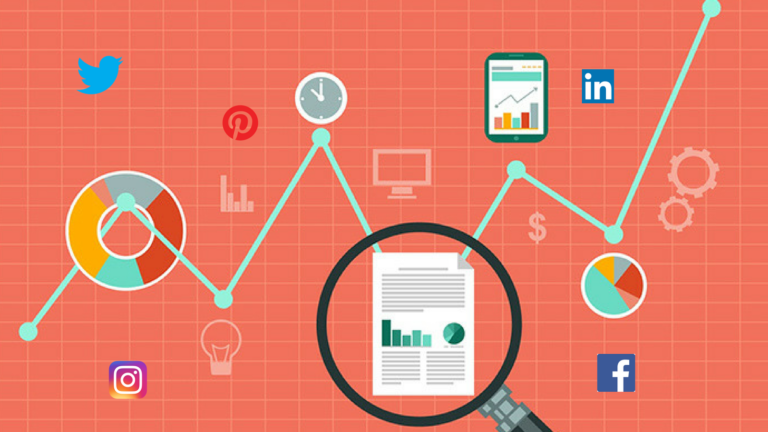In today’s digital age, where the virtual world is as influential as the physical one, understanding and leveraging social media metrics have become imperative for businesses and individuals alike. Social media metrics and analytics provide valuable insights that go beyond mere likes and shares. This article delves into the intricacies of social media metrics and analytics, exploring their types, significance, and the tools available for effective analysis.
Understanding Social Media Metrics and Analytics

Social media metrics encompass a variety of quantifiable data points that gauge the performance and impact of content on various platforms. From a business perspective, these metrics offer a window into consumer behavior and preferences, aiding in strategic decision-making. Types of social media metrics range from engagement indicators like likes, shares, and comments to more sophisticated conversion metrics, including conversion rates and cost per conversion.
Key Social Media Metrics to Track
1. Engagement Metrics
- Likes, Shares, Comments: These metrics indicate how well your content resonates with your audience.
2. Reach and Impressions
- Understanding the potential audience size and the number of times your content is displayed.
3. Click-Through Rate (CTR)
- The percentage of people who click on your content after seeing it.
4. Conversion Metrics
- Conversion Rate, Cost per Conversion: Crucial for businesses, these metrics measure the effectiveness of turning engagement into tangible actions.
Popular Social Media Platforms and Their Metrics
Social media platforms each have their unique set of metrics. Understanding these is essential for tailoring content strategies.
1. Facebook
- Page Likes, Post Reach: Key indicators of your content’s popularity and visibility.
2. Twitter
- Retweets, Mentions: Reflects the amplification and conversation around your tweets.
3. Instagram
- Followers, Hashtag Performance: Insights into your audience and content discoverability.
4. LinkedIn
- Connections, and Engagement: Important for professional networks and brand visibility.
Social Media Analytics Tools
Effective analytics require robust tools. From widely used platforms like Google Analytics to specialized social media management tools, the market offers a range of solutions catering to different needs.
Interpreting Social Media Data
Beyond collecting data, understanding the trends and patterns within it is crucial. Identifying successful content and adapting strategies accordingly ensures sustained engagement.
Utilizing Metrics for Strategy Enhancement
Metrics aren’t just numbers; they guide strategy. Regularly monitoring and adjusting content strategies based on metrics is key to sustained success.
Challenges
The journey isn’t without hurdles. Challenges include data accuracy, changing algorithms, and growing concerns about user privacy.
Future Trends
The landscape of social media is ever-evolving. Artificial Intelligence (AI) and predictive analytics are set to play a more prominent role, providing deeper insights into user behavior.
The Role of Metrics in Influencer Marketing
In the realm of influencer marketing, social media metrics take on added significance. Identifying influencers with genuine reach and understanding their impact on campaigns is vital. This section explores the symbiotic relationship between influencers and metrics, emphasizing the need for authenticity in collaborations.
Social Media Metrics and SEO
The connection between social media metrics and search engine optimization (SEO) is undeniable. The impact of social signals on search engine rankings is a topic of continuous debate. This section navigates through the intricate relationship, shedding light on how a robust social media presence can positively influence search engine visibility.
Measuring ROI in Social Media
For businesses, the bottom line is often measured in Return on Investment (ROI). Calculating the return on your social media efforts involves more than just tracking likes and shares. This section breaks down the process, emphasizing the importance of linking social media metrics to overarching business goals.
Conclusion
As we navigate the dynamic landscape of social media metrics and analytics, it becomes evident that these insights are not mere statistics. They are the compass guiding digital strategies, helping businesses and individuals connect with their audience in meaningful ways. In conclusion, the continual evolution of social media demands a commitment to understanding and harnessing the power of metrics.
For a deeper dive into optimizing your social media strategy and leveraging advanced analytics, consider taking the next step with AIM Technologies. Request a demo now and unlock the full potential of your digital presence.
FAQs
How often should I check my social media metrics?
- Regular monitoring is advisable, with a weekly analysis being a good starting point. Adjust the frequency based on campaign intensity and platform dynamics.
Do all social media metrics matter equally?
- No, the relevance of metrics depends on your goals. For instance, if brand visibility is a priority, reach and impressions might be more crucial than likes.
Can social media metrics impact SEO?
- Yes, social signals are considered in search engine algorithms. A strong social media presence can positively influence your website’s search engine rankings.
What are some common pitfalls in social media analytics?
- Overlooking data accuracy, ignoring platform-specific metrics, and failing to adapt strategies based on insights are common pitfalls.
How can I measure the success of an influencer marketing campaign?
- Look beyond likes and followers. Evaluate the impact on your key performance indicators (KPIs) and assess whether the collaboration aligns with your brand identity.




